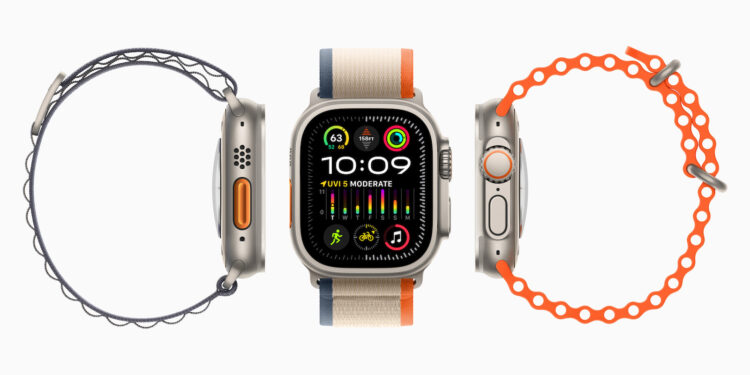A German court has ruled that Apple can no longer claim the Apple Watch is climate-neutral. The company's claim is legally untenable and misleading. This means one of the world's largest tech manufacturers must adjust its advertising. At its core, the question is whether a single forest project in Paraguay is sufficient to fully offset the CO₂ emissions of a global product.
When Apple introduced the Apple Watch Series 9 in 2023, the focus wasn't just on the technology, but also on a promise: For the first time, it would present a climate-neutral product. With this, the company wanted to underscore its role as a pioneer in environmental protection. But doubts arose shortly after the announcement. Environmental groups from Europe accused Apple of greenwashing, and a Chinese research organization even spoke of "climate washing." The debate has now landed in court in Germany – with a clear result.
The judgment of the Frankfurt Regional Court
According to Reuters , the Frankfurt Regional Court ruled that Apple's claim was unfounded and violated competition law. The focus is on the eucalyptus project in Paraguay, with which the company claims to offset its emissions. However, the court found that the long-term continuation of the project is not assured. Around 75 percent of the area is leased to Apple only until 2029, with no guarantee of renewal. This uncertainty, it argued, is sufficient to classify the advertising claim as inadmissible.
The role of Deutsche Umwelthilfe
The lawsuit was filed by the German Environmental Aid (DUH). Managing Director Jürgen Resch called it a victory against greenwashing. He believes Apple's promise of climate-neutral products creates a false impression because the basis—a fragile carbon offset project—is insufficient. This creates the illusion for consumers that the Apple Watch has a balanced carbon footprint, even though this is not guaranteed in practice.
Apple's previous reactions
No direct comment on the ruling has been made yet. However, in previous statements, Apple expressed confidence in its strategy. It prides itself on carbon-neutral products and has reduced Apple Watch emissions by more than 75 percent. In addition, the company is investing significantly in nature-based projects to remove hundreds of thousands of tons of carbon from the atmosphere. The company emphasized that these innovations are important not only for users but also for the planet.
International lawsuits and consequences
The Frankfurt ruling isn't the only legal dispute in this context. In February 2025, seven users filed a class-action lawsuit in California. The lawsuit concerns the Apple Watch Series 9, the Apple Watch SE, and the Apple Watch Ultra 2. This lawsuit also challenges Apple's advertising claims regarding carbon neutrality.
What now?
Whether Apple will appeal in Germany remains to be seen. The possibility exists, and it's considered likely that the company will take this step. Until a final decision is made, it remains unclear whether the advertising will have to be changed beforehand. What is certain, however, is that this is one of the first rulings in a series of cases concerning the issue of climate neutrality of products.
Legal uncertainty about Apple's climate neutrality
The Frankfurt ruling could have a signaling effect. It shows that climate neutrality cannot simply be claimed through offsetting projects when their future is uncertain. For Apple, this represents not only a legal defeat but also an image problem. The debate about sustainable products in the tech industry is thus intensifying, and the pressure on companies to make transparent and verifiable environmental promises is increasing. Whether the Apple Watch can ultimately be advertised as climate-neutral remains to be seen in future legal developments. (Image: Apple)
- iOS 26 update opens iPhone 16 to Qi 2.2 chargers
- iOS 26 is almost ready – release candidate coming soon
- Elon Musk sues Apple and OpenAI: Dispute over the App Store
- Apple Music launches new transfer tool in 7 more countries





